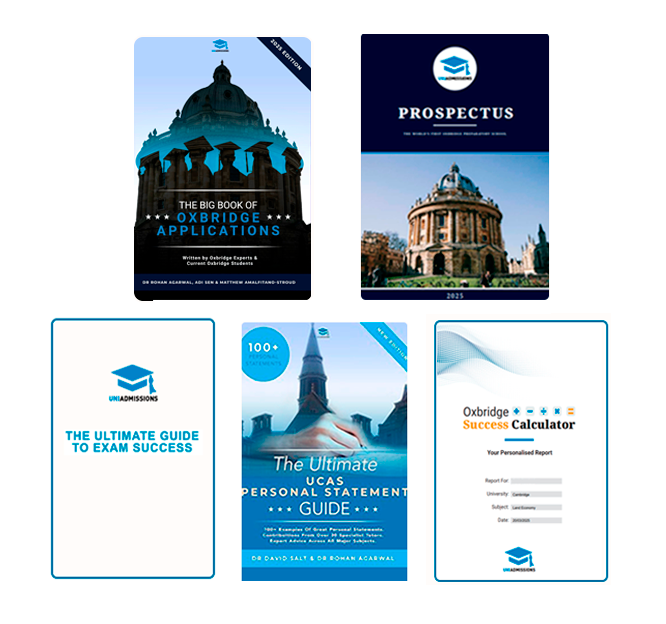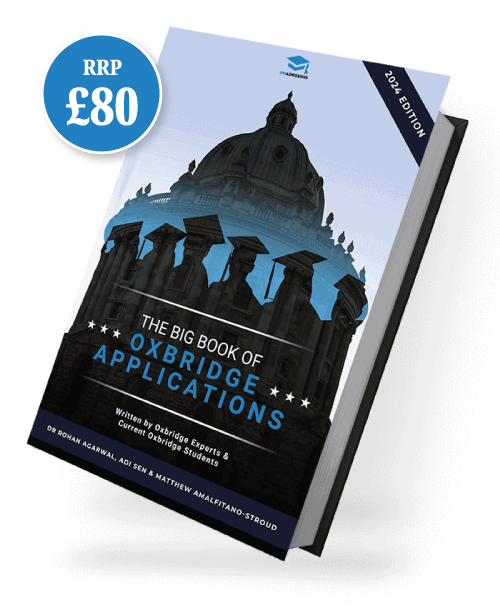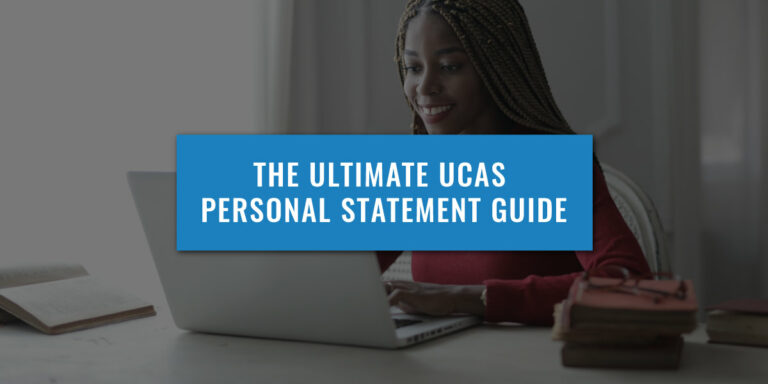The UCAS reference and letter of recommendation are the most underrated parts of your university application.
Having a strong UCAS reference and letter of recommendation is advantageous for your application as it gives admissions tutors a clear insight into what you are really like as a student.
Each year, we receive lots of UCAS related questions as students find themselves confused with the differences between a UCAS reference and a letter of recommendation. To make it clearer for you, we have explained what they are, why they are important and what the differences are.
What is the UCAS reference?
UCAS states that the reference is a written recommendation from a teacher, adviser or professional who knows you academically. Everyone needs a reference when applying to universities through UCAS, and they must be completed before your UCAS application is sent off.
A UCAS reference requires the referee to answer three sections relating to the applicant. These sections are:
- Section 1: Provide an overview of your relationship with the applicant.
- Section 2: If applicable, enter any information about extenuating circumstances which may have impacted the applicant's education and achievement.
- Section 3: Outline other supportive information specific to the applicant and relevant to the course(s) applied for that you think universities and colleges should be aware of.
UCAS states that only Section 1 is mandatory to complete, but a good reference would address at least Sections 1 and 3, plus Section 2 if it’s applicable to the applicant. The content of the writing will be the same as a standard reference but split into the different sections. The reference cannot be longer than 3,800.
The key deadlines are the 15th of October, for any course at Oxford and Cambridge, or for most courses in Medicine, Veterinary Medicine/Science, and Dentistry. The other date for the majority of courses is late January (January 14th for 2026 entry).
What is a letter of recommendation?
In addition to a UCAS reference, sometimes it can be beneficial to directly reach out to universities and colleges. The letter of recommendation is optional, but it is a chance to make a case for your place with more detail and subtlety than in your UCAS application. Once written by one of your teachers, the letter of recommendation is sent to the Head of Admissions at the university or college you are applying to. Your letter should be sent soon after you have submitted your UCAS application.
What is the difference between them?
The main difference between a UCAS reference and a letter of recommendation is that the reference is sent via UCAS and the letter of recommendation is sent separately. The UCAS reference also covers all 5 of the universities you are applying to, whereas the letter of recommendation is specific to each university or college. If you are applying for more than one subject across your 5 choices, for example, PPE and Economics, the letter of recommendation allows you to focus more on the subject, rather than a general reference via UCAS.
Effective application preparation is crucial to achieving an offer, so get the best support possible to help you through it.
Writing the perfect Personal Statement, scoring highly on your admissions test and interviewing like a pro is how you get your dream Oxbridge offer. UniAdmissions can help you achieve all of this and more!
Discover our Full-Blue Programmes for comprehensive admissions support by clicking the button below to enrol and triple your chances of success.
How do I get a UCAS reference and letter of recommendation?
When you apply through school, your teachers will write the UCAS reference for you. The school will arrange for your reference to be sent to UCAS once you have paid your application fee of £28.50.
If you have any issues with paying for your application, speak to your school or college first but if they cannot provide support, read through ‘What if I can’t afford the application fee?’ here.
We strongly suggest you start collaborating early with whoever is writing your reference as your teachers will be writing them for many other students. This will also help you ensure that the key message is put across to universities, and to check if the teachers have provided your achievements so far and highlighted your relevant skills.
Three important points to cover are:
- Academic performance and potential
- Suitability, motivation and commitment
- Recent achievements, relevant skills/qualities and relevant work experience
As we mentioned earlier, your letter of recommendation is sent directly to the college or university you are applying to and not through UCAS. Again, it is important to speak to your teachers early on to give them plenty of time to write it.
Access "The Oxbridge Application Vault"
- 300+ page ebook for Oxbridge Applicants
- 25 page ebook for Personal Statement
- 2h+ online course to succeed in any exam
- Online Oxbridge Success Calculator
- 12 page ebook about UniAdmissions

Access "The Big Book Of Oxbridge Applications" For FREE
Work experience is just one part of the Oxbridge Medicine application process, so download The Big Book Of Oxbridge Applications for free here to learn about every step of the process. Through over 350 pages, you’ll find:
- Over 40 admissions test practice questions
- 28 example Oxbridge Personal Statements
- Interviews with Oxbridge students and graduates
- Oxbridge Application Timeline and Planner
- Additional downloadable resources
Fill in your details below to claim your digital copy today!

Claim Your FREE Oxbridge Application Timeline and Planner
If you want to keep track of your application and monitor all of your important milestones, then download our free Oxbridge application Timeline and Planner. These two documents feature all of the key dates for applicants and lay out all of the tasks you should be completing to stand the best chance of success. Fill out the form below and gain instant access.

What impact do they have on my application?
Having a strong reference and letter of recommendation is beneficial to your application as it gives admissions tutors a clear insight into what you are like as a student. This cannot be conveyed as well through academic grades and Admissions Tests, so getting them both right is advantageous for your application.
We always say that the UCAS reference is the most underrated part of the university application. It shows the difference between a well-prepared school and one that lacks experience in UCAS preparation. Also, Oxford and Cambridge tend to view your UCAS reference as important in the application process. The reference and recommendation letter is a review of you as a student, sent from an academic to another. Pretend you are a car mechanic, you are more likely to trust the car parts that are recommended by another car mechanic than anyone else, and this is the same between academics when recommending a student.
Usually, tutors will be writing multiple references and letters of recommendation, so they can become quite generic, compared to your Personal Statement that you redraft a few times before sending. This further highlights the importance of collaborating with your teachers to make sure you have the best chance of receiving your offers.
What do I need to do as a mature student?
For mature students, you will likely be applying as an individual rather than with a school. UCAS explains that if you’re applying as an individual, you will need to ask a teacher, adviser, or professional who knows you if they’d be happy to provide you with a reference and similarly with a letter of recommendation. You will then need to add their details to the reference page in Apply. UCAS will then email them with a link and password so they can add their reference online. Once the reference is complete, you pay the application fee and send your application to UCAS.
Who can provide a reference?
- An employer who knows you well (e.g. a line manager)
- Current or previous work colleague
- College or school tutor
- Careers adviser
- Training assessor
- Volunteer leaders
- Counsellors
Who can’t provide a reference?
- Yourself (it would be a bit cheeky if you could, you already have a Personal Statement to sell yourself)
- Family member
- Partner or ex-partner
- Close friend
What if you are an international student?
To apply to university through UCAS as an international student, you will follow the same process as UK students. You can apply through school or college if it is registered with UCAS, or as an individual, if it is not registered with UCAS. This means that a reference and letter of recommendation is still as relevant as it is for UK students.
Final words
We hope this article has helped you understand the differences between the UCAS reference and the letter of recommendation. When you understand what each component is and why they are important, it is easy to get your head around them. Our take-home message from today is to collaborate with whoever is writing them early on, to ensure that they have plenty of time to write them and confirm that the key message is being put across to the college or university you are applying to.
Do not feel awkward about approaching your teacher and asking to go through your reference, as it is important that you give yourself the best chance of receiving your dream offer. It can be nice to hear your teachers speak highly of you, your skills and your achievements.
Looking to enhance your UCAS reference and letters of recommendation? Look no further.
As part of our Programmes, you will receive exclusive UCAS reference and letter of recommendation advice, with templates written by Oxbridge tutors to strengthen your university application. There’s a reason (and plenty of them) why we triple students chances of success each year. We help you craft the perfect Personal Statement, achieve a highly competitive Admissions Test score and teach you how to Interview effectively.
Discover our Full-Blue Programmes by clicking the button below to enrol and triple your chances of success.








